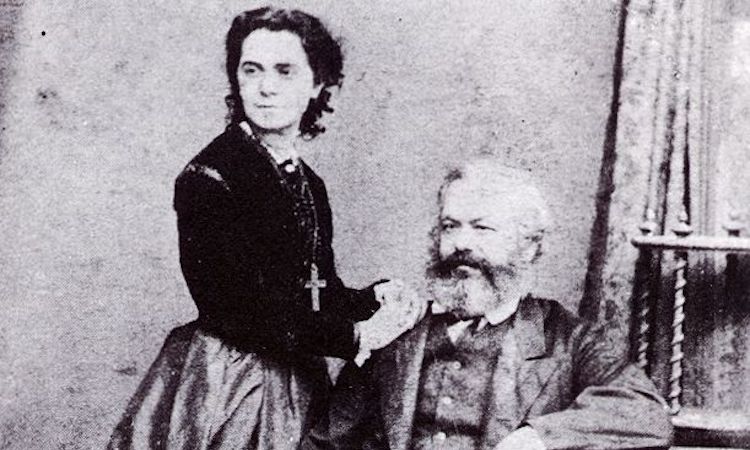In this short video, leading communist Dr Ranjeet Brar speaks to a meeting held in 2018 to celebrate the 200th anniversary of Karl Marx’s birth.
It’s generally agreed, he says, that Karl Marx had a profound effect on the thinking of humanity. Even a BBC poll at the turn of the century pronounced Marx to be the greatest thinker of the millennium.
When the Soviet Union collapsed in 1991, workers were drowned in a deluge of capitalist triumphalism. In Germany, we watched Chancellor Cole hold up a copy of VI Lenin‘s Imperialism and Marx’s Capital before dramatically throwing them away to symbolise their alleged ‘failure’.
An obscure US-sponsored ideologue, Francis Fukuyama, was everywhere promoted, along with his convenient declaration that this was the “end of history” – that the demise of the USSR proved that there’s no higher form of society or state than capitalism, that system which embodies the exploitation of man by man and of nation by nation.
But when the economic crisis hit in 2008; when banks were collapsing and stock markets were plunging; when the housing market was slumping and working people were being laid off, too impoverished to buy the glut of unsaleable goods rotting in the factories, the ruling class’s ideologues changed their tune, and it became fashionable once again to briefly and glibly ‘revisit’ Marxism.
Marx, it was admitted, had been onto something, had understood something important about the way the market and the capitalist system operate to create such crises.
The BBC very cleverly took a lead in that discussion, putting on a series of programmes in which it claimed to evaluate Marx’s work before asserting that he had never presented any alternative to the present system.
But one only has to open the pages of the Communist Manifesto to see what an absolute lie this is.
Marx not only described the history of class struggle and the specific problems of capitalism, he also demonstrated very clearly that the capitalist system contains within itself the seeds of its own destruction. The workingmen (the propertyless ‘proletarians’) are the gravediggers of capitalism and will be the builders of a new society that will end exploitation and take hold of the means of production (factories, land, etc) so that production can be reorganised to meet the needs of the people and provide a decent life for all, he said, and showed exactly how he had arrived at this conclusion.
Russian revolutionary leader Vladimir Lenin found it necessary to revisit Marx’s teachings on the state at the time of the first world war, because across Europe social democrats (in Britain, the Labour party) had deserted the working class and sided with their imperialist rulers over the question of the war, voting for war credits and supporting the sending of millions of workers into battle to slaughter one another to determine which gang of exploiters should control how much of the world’s wealth.
Lenin noted how often revolutionary thinkers are derided, abused, reviled and discredited during their lifetimes, when they’re actively involved in revolutionary struggle and their ideas are a threat to the established order, but are reinvented in an officially-approved form after their deaths – with the revolutionary essence of their teaching cut out – so that the remaining shadow can be presented to workers as a consolation prize to ease their suffering under the status quo.
Even in Lenin’s day, it was perfectly acceptable for all types of people to declare themselves ‘Marxist’ so long as they ignored the revolutionary teaching of Marx on the state; on the need for building a new type of state capable of representing the interests of the working class.
But the need for a workers’ state was the fundamental essence of the revolutionary teachings of Karl Marx, and it is this essence that the capitalists have worked hard to obscure and to keep from the workers.













